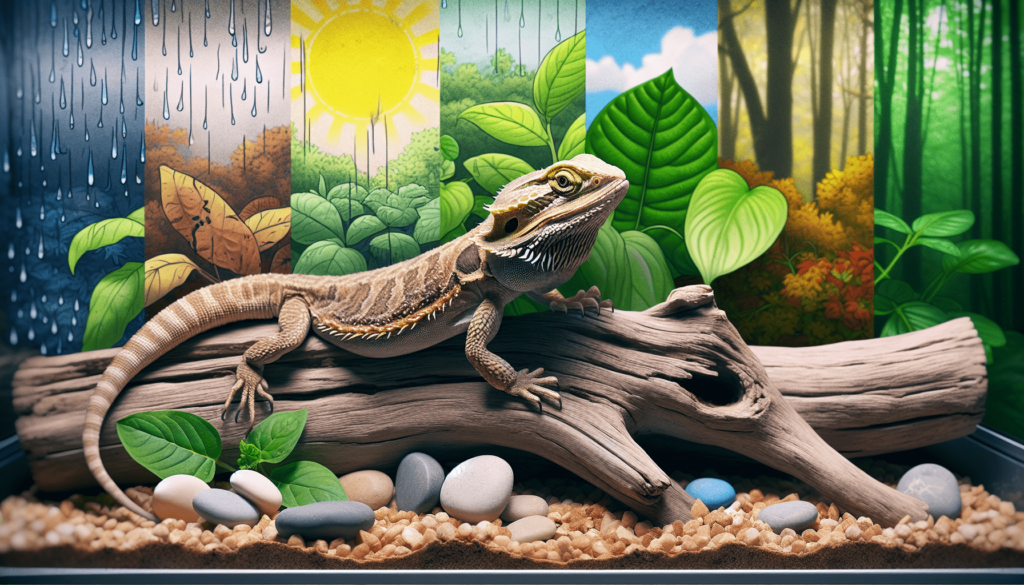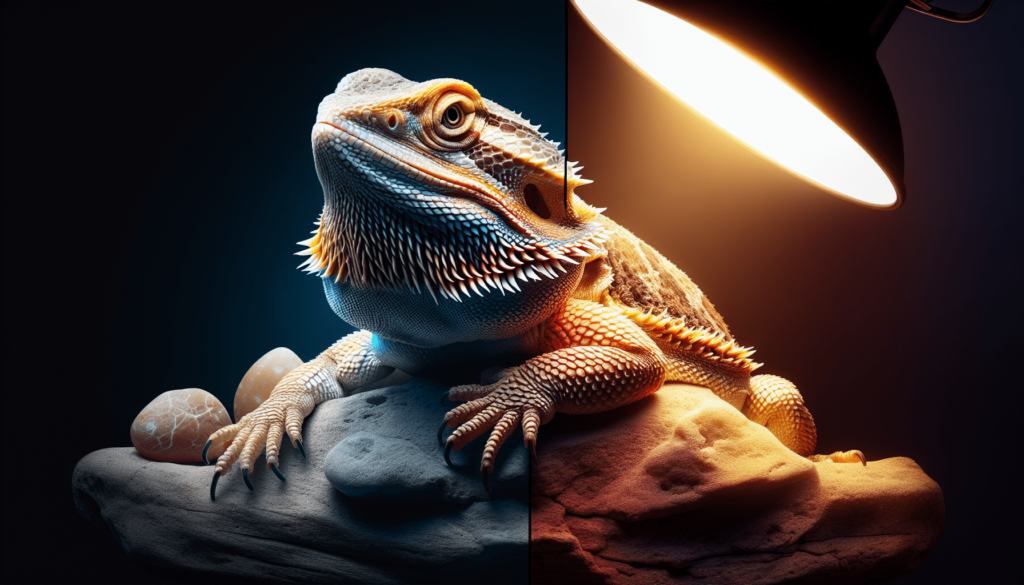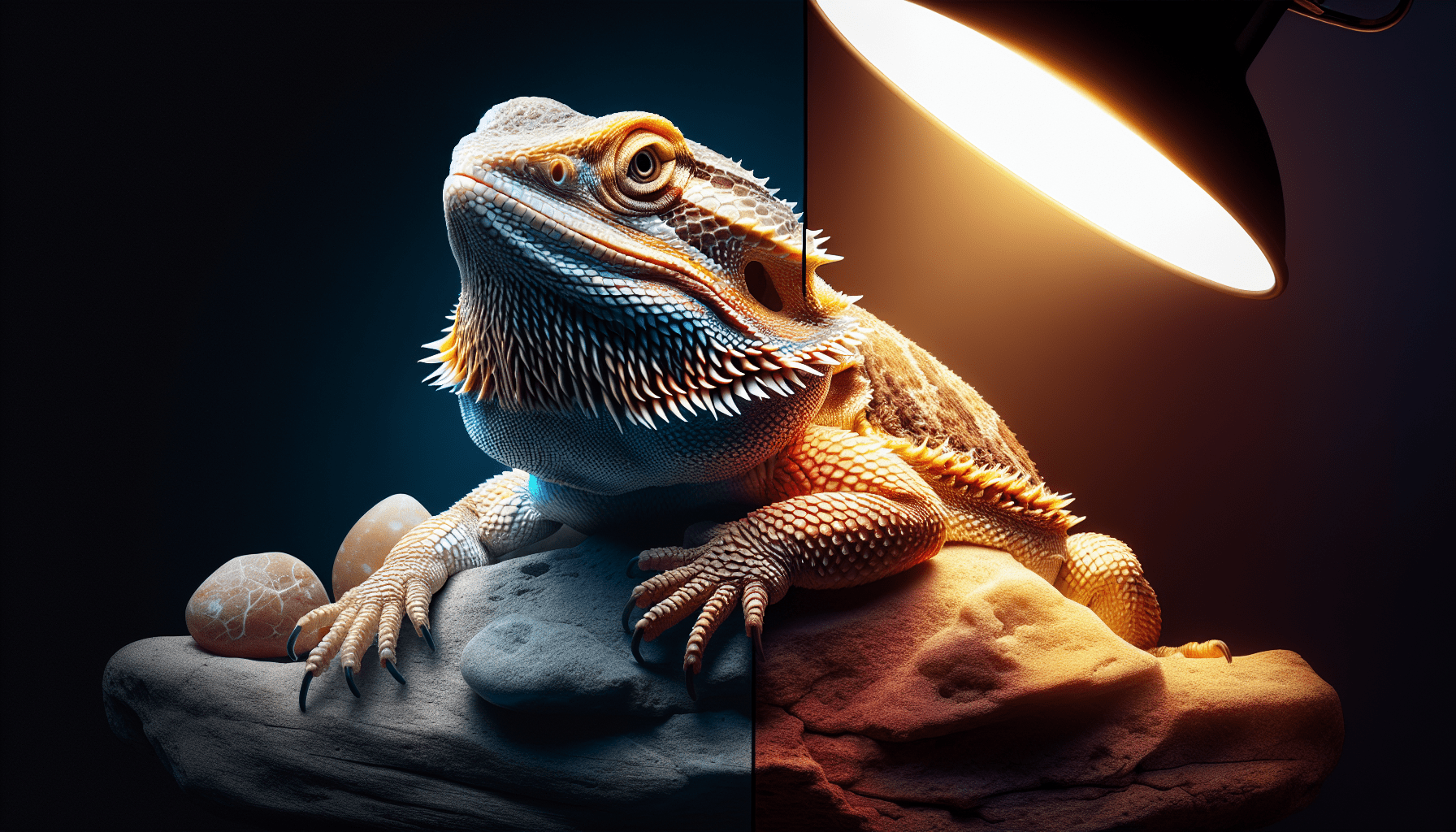Imagine having a little scaly companion like a bearded dragon, sitting in its tank basking under a heat lamp. These incredible reptiles can make wonderful pets, but one question that may arise in your mind is, “Is 15 old for a bearded dragon?” Like any living creature, bearded dragons have a lifespan, and it’s natural to wonder if they are considered old at a certain age. In this article, we will explore the average lifespan of these fascinating creatures and determine if 15 years is indeed old for a bearded dragon. So, let’s dive into the world of these unique reptiles and find out more!

Lifespan of a Bearded Dragon
Bearded dragons are fascinating reptilian pets that can bring joy and companionship to your life for many years. Understanding their lifespan is crucial for providing them with the care they need. In this article, we will explore various aspects of a bearded dragon’s lifespan, including factors that can affect their longevity, signs of aging, and tips for providing a comfortable environment as they age.
Overview of Bearded Dragon Lifespan
Bearded dragons, scientifically known as Pogona, are native to Australia and are among the most popular reptile pets worldwide. These incredible creatures can live for an average of 10 to 15 years, depending on various factors. Bearded dragons are known for their unique appearance, with rough scales, a triangular head, and a spiky beard that they can puff out when threatened or during mating displays. They have become beloved pets due to their docile nature, intelligence, and beautiful colors.
Factors Affecting Bearded Dragon Lifespan
Several factors can influence the lifespan of a bearded dragon, including genetics, diet, habitat conditions, and general care. Genetics play a significant role, as certain genetic strains may be predisposed to health issues or have a shorter lifespan. Providing proper nutrition throughout their life, such as a balanced diet consisting of appropriate insects, leafy greens, and occasional fruits, is crucial for their overall health and longevity. Additionally, the habitat conditions, including temperature, humidity, and lighting, should be carefully regulated to mimic their natural environment.
Average Lifespan of a Bearded Dragon
While 10 to 15 years is the average lifespan of a bearded dragon, it should be noted that some individuals have been known to live even longer, exceeding 20 years in rare cases. Proper care, regular veterinary check-ups, and a healthy lifestyle contribute to their longevity. By understanding their growth and development, age categories, and how to determine their age, you can ensure that you provide the necessary care at each stage of their life.
Age Considerations for Bearded Dragons
Bearded Dragon Growth and Development
Bearded dragons experience significant growth and development during their first year of life. From hatching as small, fragile creatures, they rapidly grow in size and gain strength. During this period, it is crucial to provide them with a suitable enclosure, a varied diet, and the right temperature and lighting conditions. This will ensure their healthy development and lay the foundation for a long and happy life.
Age Categories for Bearded Dragons
As bearded dragons mature, they can be categorized into three distinct age groups: hatchlings, juveniles, and adults. Hatchlings are typically newborns up to three months old, while juveniles range from three months to one year. Once they reach the age of one year, they are considered adults. Each age category requires specific care to meet their unique needs, which include dietary adjustments, enclosure size, and UVB lighting requirements.
Determining the Age of a Bearded Dragon
Determining the age of a bearded dragon can be challenging, especially if you acquire them as a rescue or an adult with an unknown history. However, certain clues can provide rough estimates. By examining their size, weight, coloration, and physical characteristics, you can make an educated guess about their age. Additionally, consulting with a reptile veterinarian or an experienced breeder can provide valuable insights into determining the age of your bearded dragon.
Health and Well-being of Bearded Dragons
Signs of Aging in Bearded Dragons
As bearded dragons age, they experience changes in their physical appearance and behavior. It is essential to monitor these changes to ensure their well-being. Signs of aging in bearded dragons may include a loss of brightness in their coloration, decreased overall activity levels, slower movements, and a decrease in muscle tone. Changes in their skin texture and the appearance of age-related ailments, such as cataracts or joint stiffness, should also be observed.
Common Health Issues in Aging Bearded Dragons
Like any living being, bearded dragons can develop health issues as they age. Some of the common health issues that may affect aging bearded dragons include metabolic bone disease, respiratory infections, parasites, and digestive problems. Regular veterinary check-ups and proactive care are crucial for detecting and treating these issues early, ensuring a higher quality of life for your beloved reptile companion.
Maintaining a Healthy Bearded Dragon
To promote the health and well-being of your bearded dragon, it is essential to establish a routine for their care. This routine should include providing a balanced and nutritious diet, regular exercise and physical stimulation, and a clean and suitable enclosure. Proper temperature and lighting conditions, along with regular baths and grooming, are also essential. Additionally, ensuring that they have access to fresh water and monitoring their hydration levels is vital for their overall health.
15 Years: Is it Old for a Bearded Dragon?
Bearded Dragon Age vs. Human Age
It can be challenging to determine the age of a bearded dragon and compare it to human age. While the average lifespan of a bearded dragon is 10 to 15 years, reaching the age of 15 can indeed be considered old for a bearded dragon. In human terms, a 15-year-old bearded dragon may be equivalent to a senior citizen. However, it is important to note that each bearded dragon is unique, and factors such as genetics and overall health can influence their lifespan.
Bearded Dragon Lifespan Expectations
To set realistic expectations about a bearded dragon’s lifespan, it is crucial to understand their average lifespan and the factors that can affect it. While some bearded dragons may live well into their late teens or even beyond, others may have a shorter lifespan due to various reasons, including genetic predispositions or health issues. Providing proper care, nutrition, and a stress-free environment can significantly impact their longevity and overall quality of life.
Factors Affecting Bearded Dragon Longevity
Several factors can influence a bearded dragon’s longevity. The most significant factors include genetics, diet, environment, and veterinary care. A bearded dragon with a strong genetic background, provided with a well-balanced diet, housed in an appropriate enclosure, and receiving regular veterinary check-ups, is more likely to live a longer and healthier life. Additionally, addressing health issues promptly and proactively can increase their chances of reaching their maximum lifespan.

Special Care for Older Bearded Dragons
Nutritional Requirements for Aging Bearded Dragons
As bearded dragons age, their nutritional requirements may slightly change. While they will still need a diet primarily consisting of high-quality insects and leafy greens, adjustments may be necessary to accommodate their decreased activity levels and metabolic changes. It is important to consult with a reptile veterinarian to ensure you provide a balanced diet that meets their specific needs during their senior years.
Providing Suitable Enclosure for Elderly Bearded Dragons
Elderly bearded dragons may require adjustments in their enclosure to ensure their comfort and safety. Providing a spacious enclosure with appropriate hiding spots, perches, and basking areas is crucial. Ensuring that the temperature and lighting conditions remain optimal for their health and well-being is also essential. Additionally, providing soft substrates and ramps can help alleviate stress on their joints and make their movements more comfortable.
Veterinary Care and Regular Check-ups
Regular veterinary care and check-ups are vital for the well-being of older bearded dragons. As they age, they may be more susceptible to certain health issues, making proactive care even more critical. Routine examinations can help detect any signs of illness or age-related ailments early on, enabling prompt treatment and intervention. Your reptile veterinarian can provide guidance on appropriate testing, vaccination schedules, and any necessary medications to keep your aging bearded dragon healthy.
Behavioral Changes in Aging Bearded Dragons
Decreased Activity Levels
One noticeable behavioral change in aging bearded dragons is a decrease in activity levels. As they age, they may become less active and spend more time basking or resting. It is important to provide them with ample opportunities for heat, UVB exposure, and a variety of perching spots to accommodate their changing activity patterns. Encouraging gentle exercise through interactive activities or supervised exploration can also help maintain their muscle tone and mental stimulation.
Changes in Feeding Habits
Aging bearded dragons may experience changes in their feeding habits. They may become more selective with their food preferences or show decreased appetite. Adjusting their diet to include softer or more easily digestible foods, such as finely chopped vegetables or specially formulated senior bearded dragon diets, can help ensure they receive proper nutrition. Hand-feeding or offering smaller, more frequent meals may also encourage their appetite.
Altered Sleeping Patterns
As bearded dragons age, their sleeping patterns may also change. They may require more sleep and restful periods throughout the day. Providing them with a quiet and low-stress sleeping area within their enclosure is important. It is also advisable to ensure that the temperature and lighting are appropriate for their sleep cycles, allowing them to rest undisturbed.
Tips for Providing a Comfortable Environment
Maintaining Optimal Temperatures
Creating a comfortable environment for your aging bearded dragon involves maintaining optimal temperature ranges throughout their enclosure. Providing a temperature gradient, with warmer basking areas and cooler zones, allows them to regulate their body temperature effectively. Using thermostats and thermometers for accurate monitoring and making adjustments as needed will ensure their comfort and well-being.
Creating a Stress-Free Environment
A stress-free environment is crucial for the overall health and happiness of aging bearded dragons. Minimizing loud noises, sudden movements, or other stress-inducing factors can help reduce their stress levels. Providing them with adequate hiding spots, a sense of security, and a consistent daily routine can further contribute to a calm and stress-free environment.
Offering Enrichment Activities
Enrichment activities are essential for keeping aging bearded dragons mentally stimulated and engaged. Providing them with various toys, puzzles, and interactive feeding methods can help prevent boredom and encourage natural behaviors. Supervised outside time or safe exploration of different environments can also offer mental and physical stimulation. However, it is important to closely monitor their activity levels and adjust the duration and intensity of these activities according to their individual needs.
Prolonging the Lifespan of Bearded Dragons
Proper Diet and Nutrition
A proper diet and nutrition play a crucial role in prolonging the lifespan of bearded dragons. Providing a well-balanced diet that meets their nutritional needs throughout their life is essential. Adjusting their diet as they age and seeking guidance from a reptile veterinarian will ensure they receive the necessary nutrients. Supplementation with calcium and multivitamins, as recommended by a professional, can also contribute to their overall health and help prevent deficiencies.
Regular Exercise and Physical Stimulation
Regular exercise and physical stimulation are key components of a healthy lifestyle for bearded dragons. Encouraging regular movement and providing opportunities for exploration within a safe environment can help them maintain their muscle tone, bone density, and overall fitness. Incorporating gentle exercises and enrichment activities into their routine will contribute to their physical and mental well-being.
Preventing and Treating Common Health Issues
Preventing and treating common health issues is vital to prolonging the lifespan of bearded dragons. Regular veterinary check-ups, prompt treatment of illnesses, and proactive care can help prevent minor issues from escalating into major health problems. Maintaining proper sanitation, providing appropriate humidity levels, and avoiding overcrowded or stressful living conditions are additional measures to prevent the occurrence of common health issues.
Knowing When to Say Goodbye
Recognizing Signs of Suffering in Bearded Dragons
As responsible and caring pet owners, it is important to recognize when our aging bearded dragons may be suffering. Signs of suffering may include a significant decline in overall health, persistent pain, severe mobility issues, persistent loss of appetite, or a decline in the quality of life. It can be a difficult decision to make, but consulting with a reptile veterinarian and considering euthanasia may be the most compassionate choice to prevent unnecessary suffering.
Consulting with a Reptile Veterinarian
If you have concerns about the health or well-being of your aging bearded dragon, consulting with a reptile veterinarian is highly recommended. Reptile veterinarians have specialized knowledge and experience in caring for these unique creatures. They can provide guidance, conduct thorough examinations, and offer valuable insights into your bearded dragon’s specific needs. Building a relationship with a reptile veterinarian and seeking their professional advice throughout your bearded dragon’s life can greatly contribute to their overall health and longevity.
End of Life Care and Euthanasia
For some aging bearded dragons, providing end-of-life care and considering euthanasia may be necessary. It is essential to prioritize their comfort and well-being during this difficult time. Discussing options with a reptile veterinarian and considering the advice of professionals can help make an informed decision that minimizes suffering and ensures a peaceful passing if needed. Remember, it is a challenging decision, but one made out of love and compassion for your beloved bearded dragon.
Conclusion
Understanding the lifespan of a bearded dragon is essential for providing them with the best possible care throughout their life. By considering the factors that can affect their longevity, recognizing signs of aging, and implementing special care for older bearded dragons, you can contribute to their overall health and well-being. Remember to consult with a reptile veterinarian for professional guidance and to create a comfortable and enriched environment that promotes a long and fulfilling life for your cherished bearded dragon companion.
